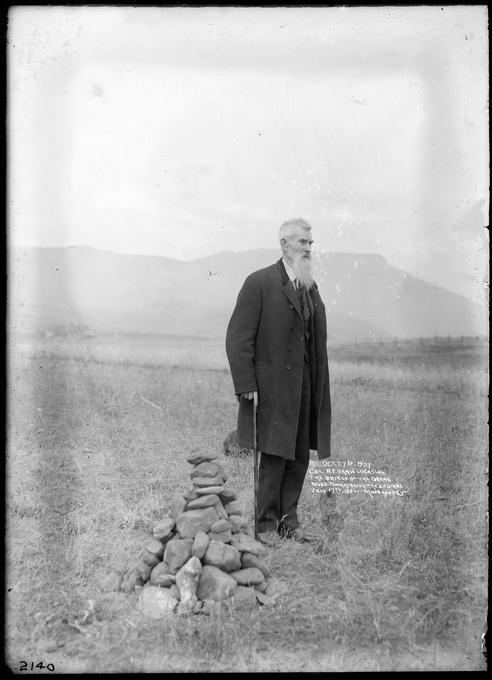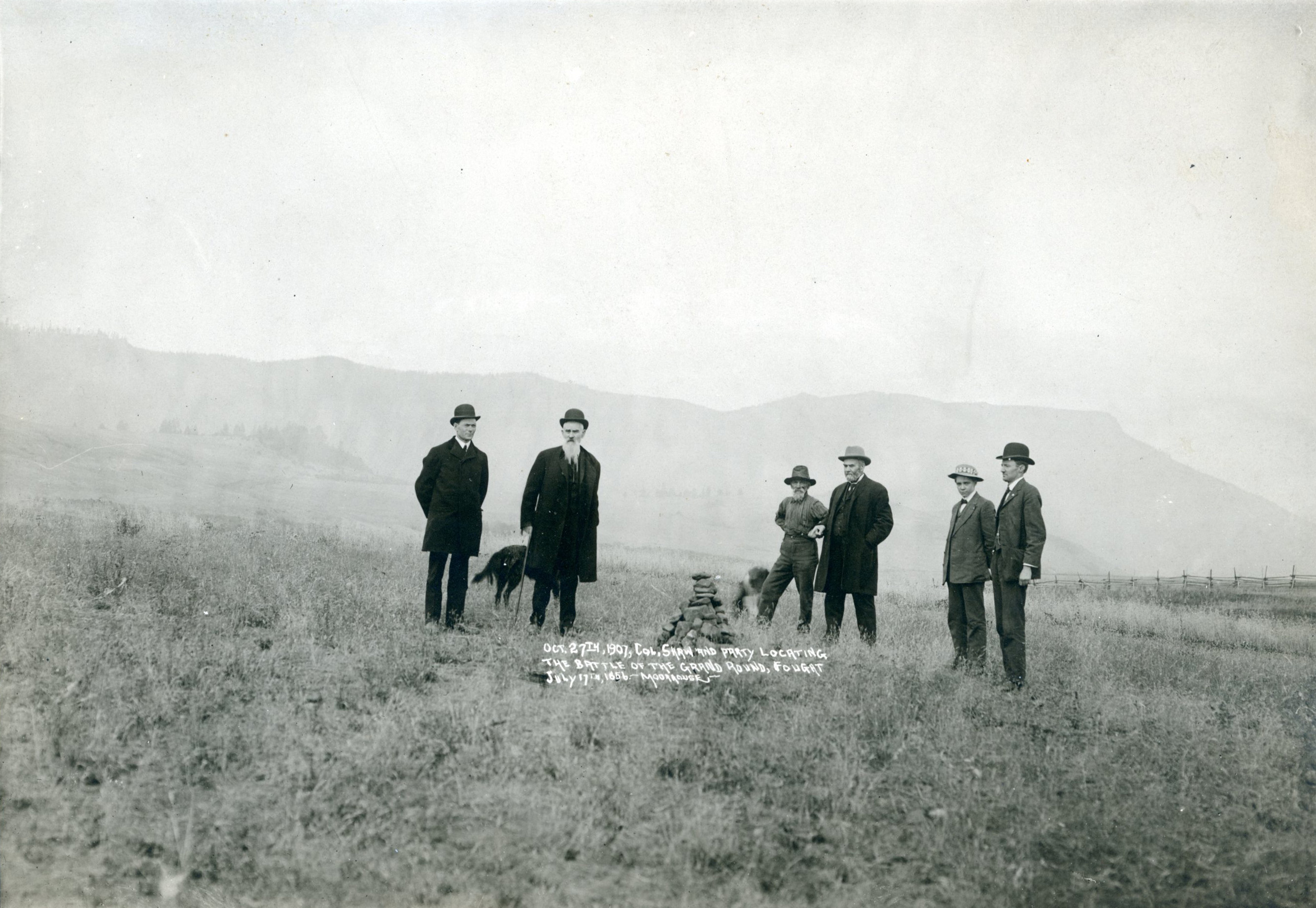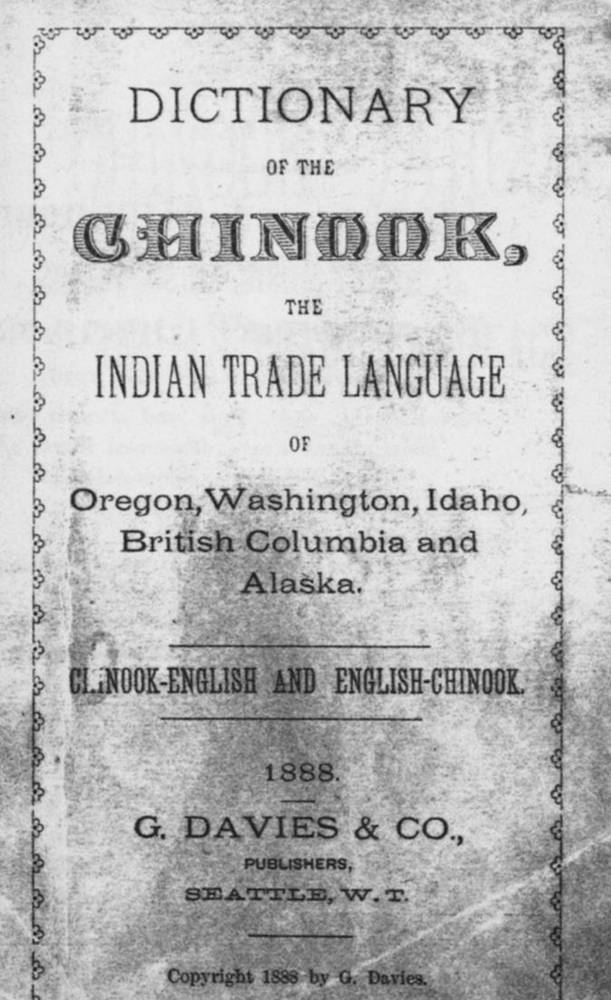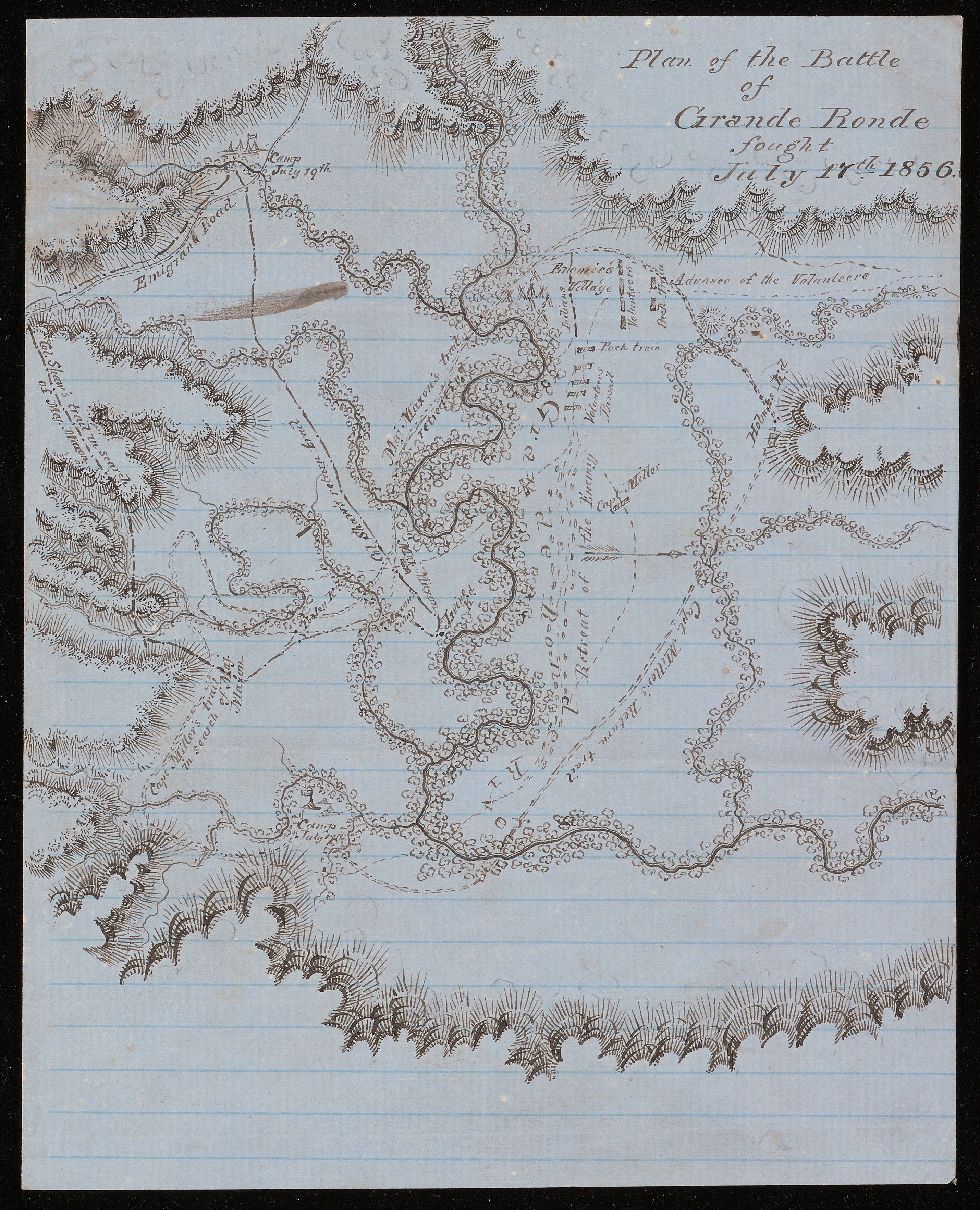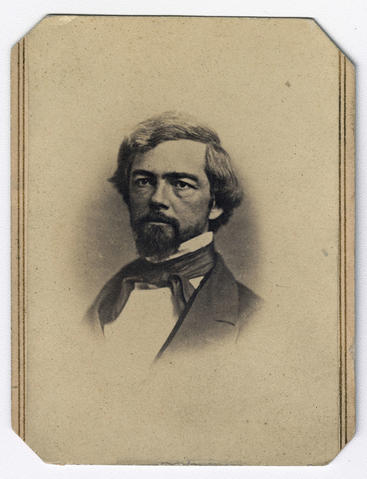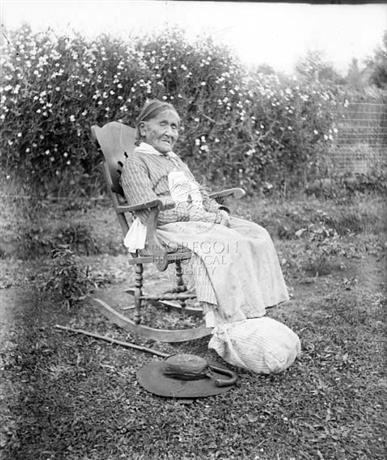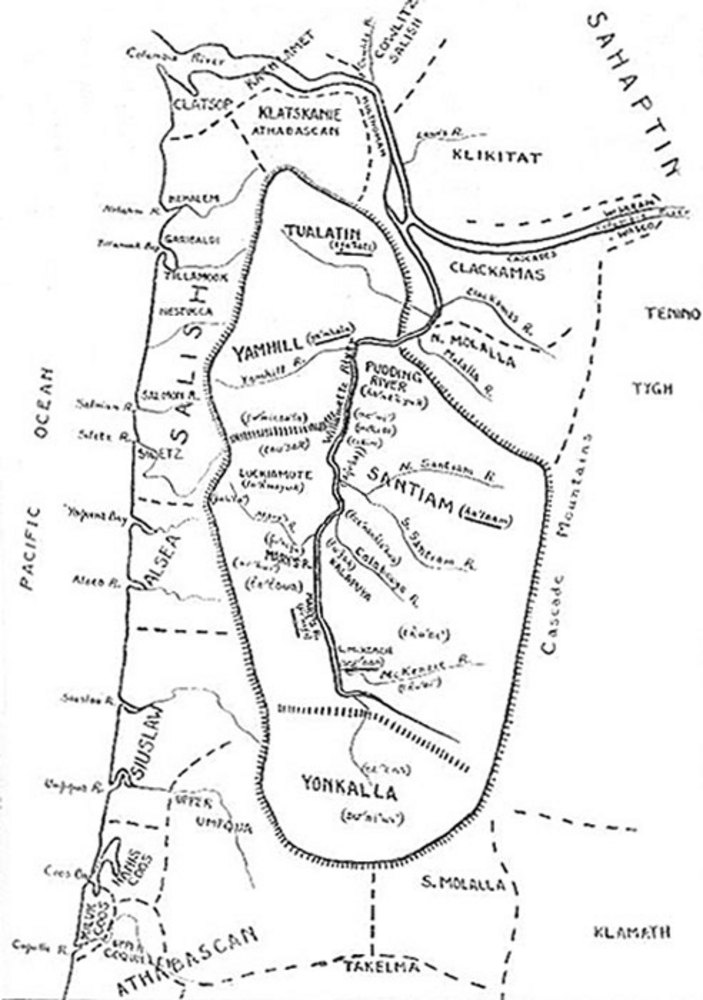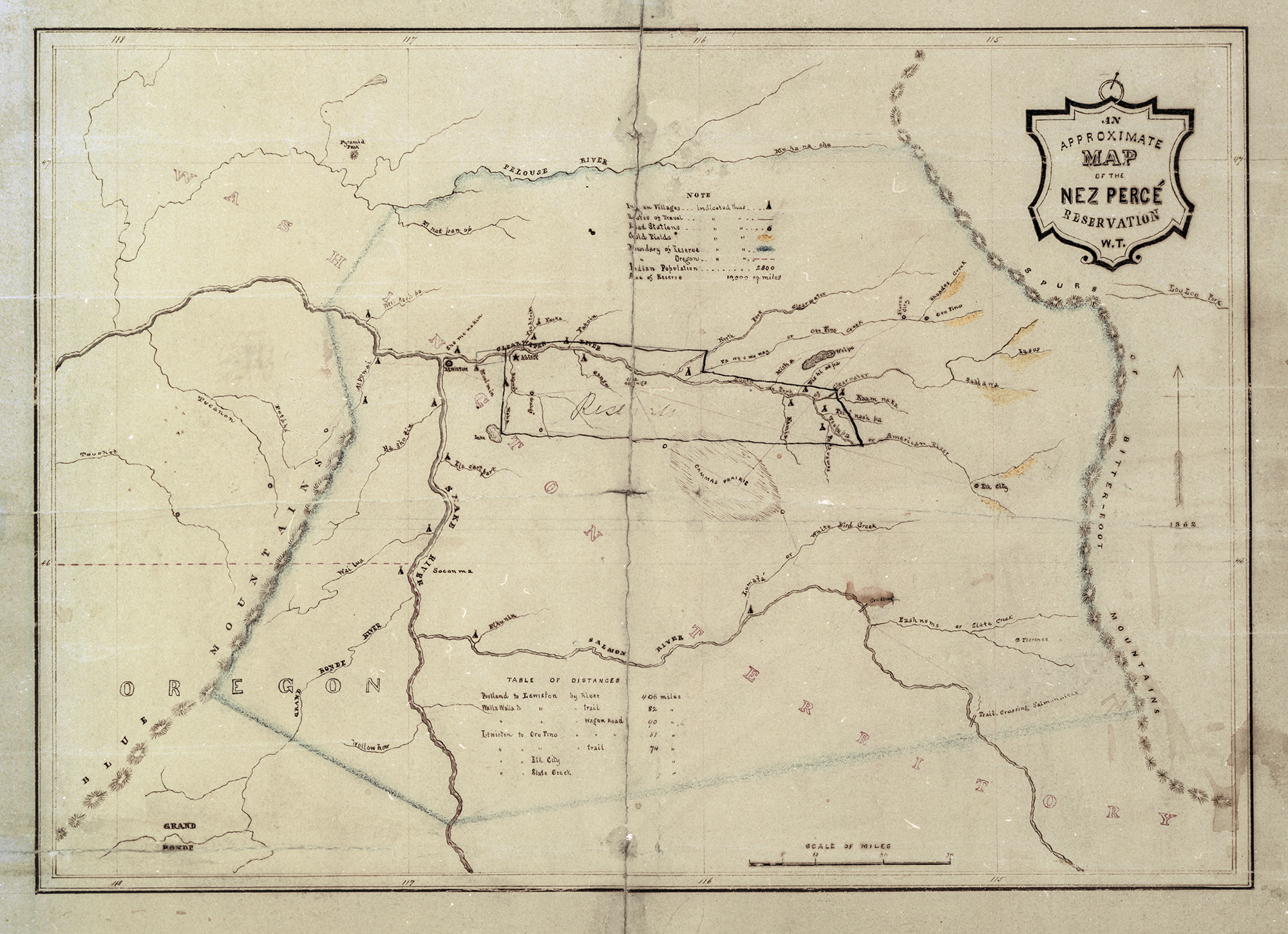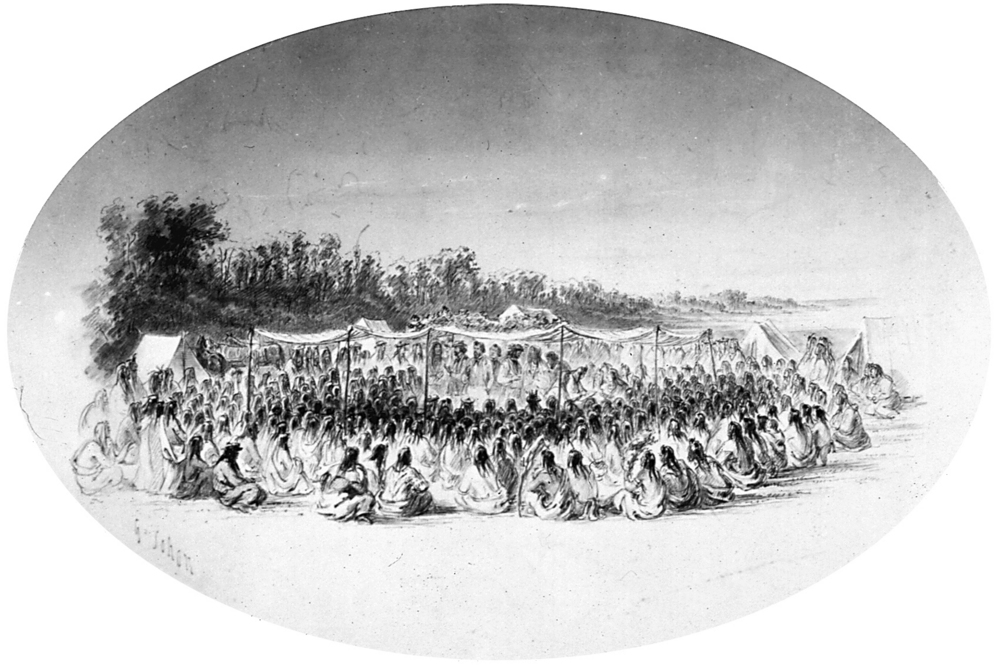During the 1850s, Benjamin Franklin Shaw served as an interpreter for Washington Territorial Governor Isaac Stevens at treaty councils with Native tribes in the Pacific Northwest. He participated in treaty negotiations in 1854 and 1855 in the Puget Sound region and later stood as a vocal defender of the U.S. government’s actions against Indians who resisted the treaties and their forced removal to reservations. Shaw was also the leader of a military expedition of volunteer troops that attacked a Native village in eastern Oregon in 1856 as part of the Yakima War.
Born in Missouri in 1829, B.F. Shaw came west with his family in 1844 and resettled in the Champooick District (part of present-day Marion County). Within a year, the tall, muscular teenager headed north with a fellow emigrant, Michael T. Simmons, to a new community on southern Puget Sound at present-day Olympia. Within a few years, Shaw had invested time and energy in local businesses and had become a supporter of Isaac Stevens, who had sought out alliances with local businessmen on his arrival in Washington Territory in 1853. Stevens took advantage of Shaw’s facility with Chinook Jargon to hire him as an interpreter in Puget Sound treaty negotiations. Because of his success and his eagerness to lead volunteer forces in battle, Stevens sent him east of the Cascades in 1856 to chastise Natives for hectoring whites and for their perceived failure to abide by the terms of the 1855 Walla Walla Council treaties.
As commander of Washington Territory volunteers in July 1856, Shaw led a cobbled-together force of nearly two hundred men against a village of Walla Walla, Cayuse, and Umatilla families camped along the Grande Ronde River near present-day Summerville, Oregon. Unable to find the camp of Yakama leader Kamiakin, one of the leaders of recalcitrant Native bands in the region, Shaw descended on the village on July 17, killing about sixty men, women, and children, destroying their homes and foodstuffs, and capturing some two hundred horses. The episode, which historian Kent Richards labeled “deserving of an equal share of infamy” with other massacres of Native people in the American West, made Shaw a hero to many whites.
Once Stevens left Washington Territory in 1857 to be the territorial delegate to Congress, Shaw moved to Oregon and later to Vancouver, Washington Territory, in 1870. He married Cynthia Nye in 1871, and the couple had two children. During the 1870s, he represented Clark County in the Washington Territorial legislature, and he served one term as register of the federal land office in Vancouver in the 1880s. Shaw married Agnes Baker in 1890, after the death of his first wife.
By 1900, Shaw was retired and living in Portland, where he was active in the Oregon Pioneer Association. In 1903, he reasserted his knowledge of Indian treaties in a speech on the Medicine Creek Treaty of 1854 that defended Stevens and the treaty-making process by arguing that Native people had no inherent right to lands in the Pacific Northwest. In short, he remained an advocate for the resettlement of the Pacific Northwest by non-Natives late into his life.
Shaw lived on in Portland until he died of a stroke in 1908 at the age of seventy-eight.
-
![]()
Col. B. F. Shaw locating the site of the massacre at Grande Ronde, 1907.
Courtesy University of Oregon Libraries -
![]()
B.F. Shaw.
Courtesy Oreg. Hist. Soc. Research Lib., 014880
-
![Col. Shaw stands second from the left; George Himes, of the Oregon Historical Society, is third from the right. They were joined by various newspaper editors in 1907 to locate the site of the battle/massacre.]()
Site of the Indian camp, in the Grande Ronde Valley, attacked by Shaw's forces in 1856.
Col. Shaw stands second from the left; George Himes, of the Oregon Historical Society, is third from the right. They were joined by various newspaper editors in 1907 to locate the site of the battle/massacre. Oregon Historical Society Research Library, photo file 960
Related Entries
-
![Chinook Jargon (Chinuk Wawa)]()
Chinook Jargon (Chinuk Wawa)
According to our best information, the name "Chinook" (pronounced with …
-
![Grande Ronde Massacre, 1856]()
Grande Ronde Massacre, 1856
On July 17, 1856, Washington Territory volunteer soldiers, under the co…
-
![Isaac Ingalls Stevens (1818-1862)]()
Isaac Ingalls Stevens (1818-1862)
Isaac Stevens strode through the Northwest's formative years (1853-1861…
-
![Kalapuyan peoples]()
Kalapuyan peoples
The name Kalapuya (kǎlə poo´ yu), also appearing in the modern geograph…
-
![Kalapuya Treaty of 1855]()
Kalapuya Treaty of 1855
The treaty with the Confederated Bands of Kalapuya (1855) is the only r…
-
![Native American Treaties, Northeastern Oregon]()
Native American Treaties, Northeastern Oregon
After American immigrants arrived in the Oregon Territory in the 1840s,…
-
![Walla Walla Treaty Council 1855]()
Walla Walla Treaty Council 1855
The treaty council held at Waiilatpu (Place of the Rye Grass) in the Wa…
Map This on the Oregon History WayFinder
The Oregon History Wayfinder is an interactive map that identifies significant places, people, and events in Oregon history.
Further Reading
Shaw, Benjamin F. "Medicine Creek Treaty." Speech delivered December 20, 1903. In Proceedings of the Oregon Historical Society (1906): appendix C, 24-32.
"Shaw obituary."Oregonian, February 4, 1908.
"Battle of Grand Ronde." Oregonian, February 8, 1908.

